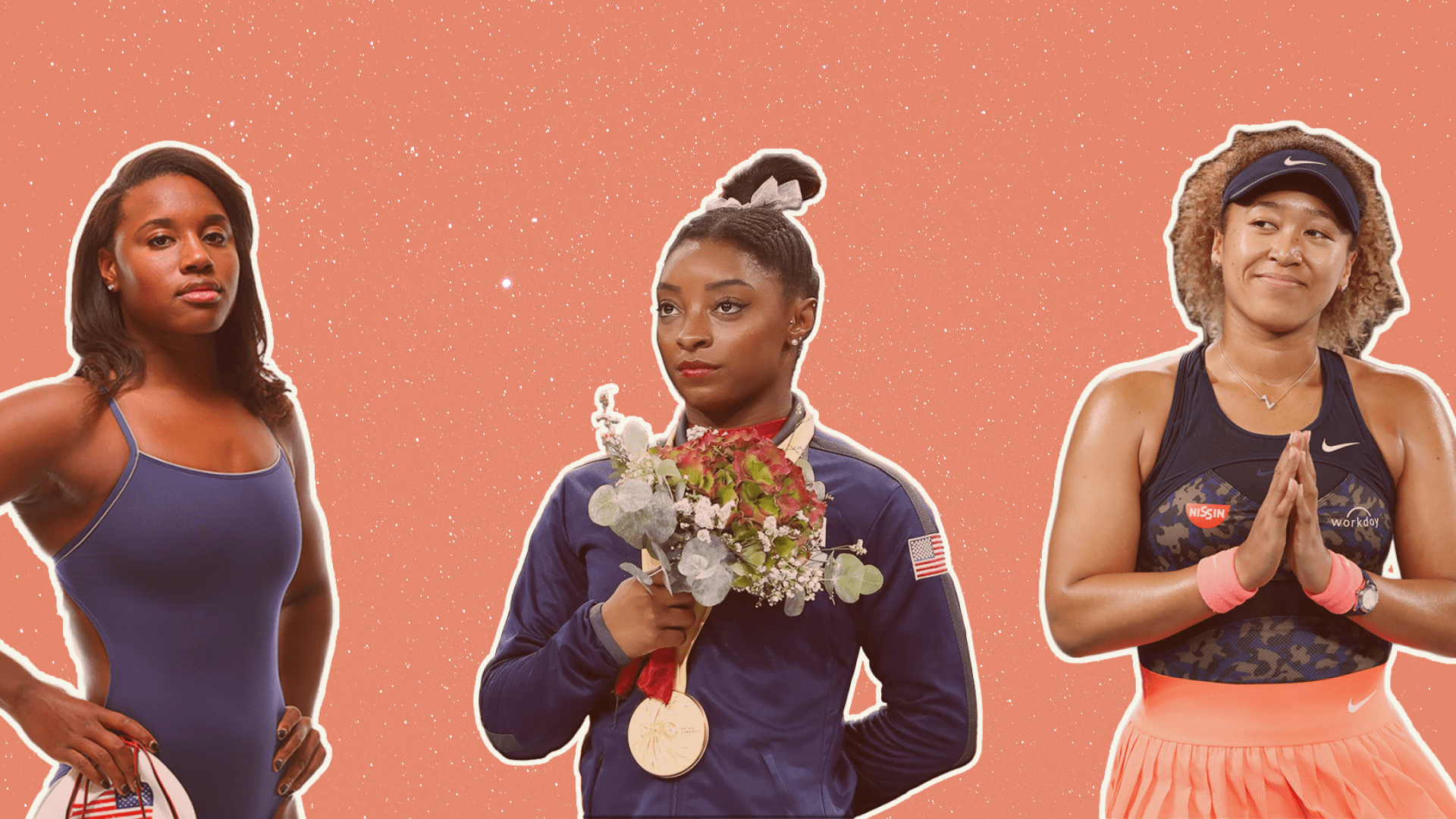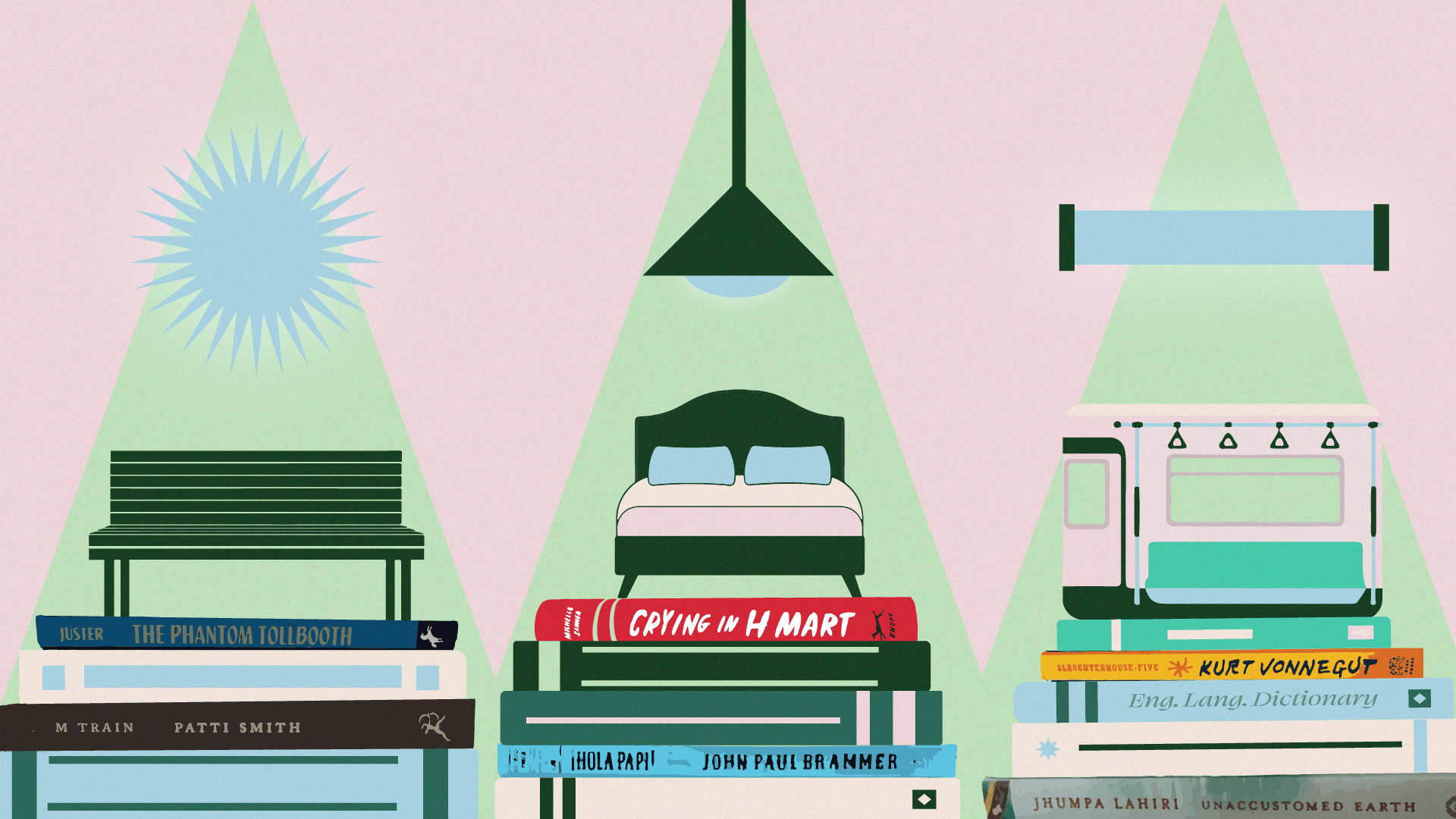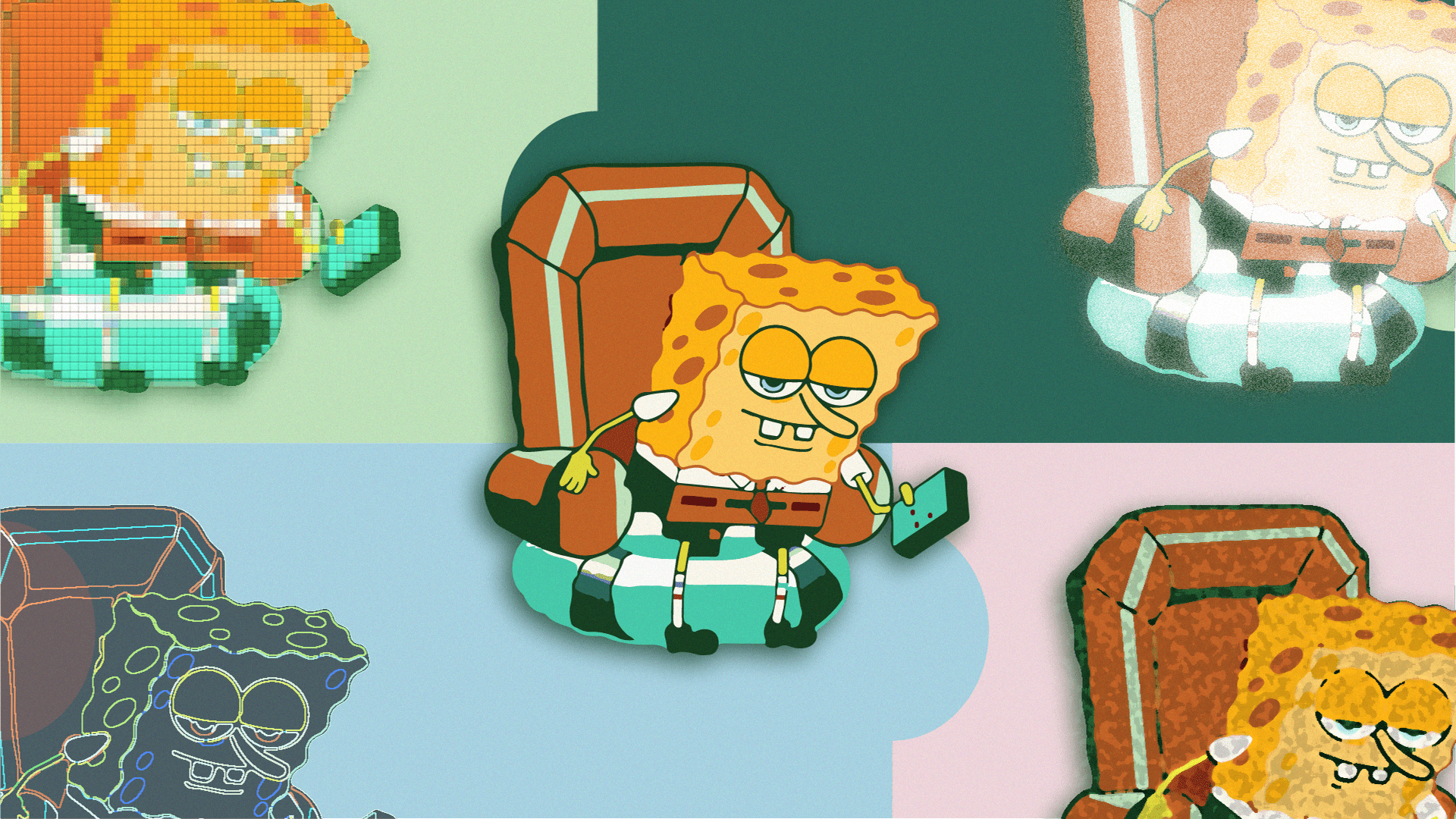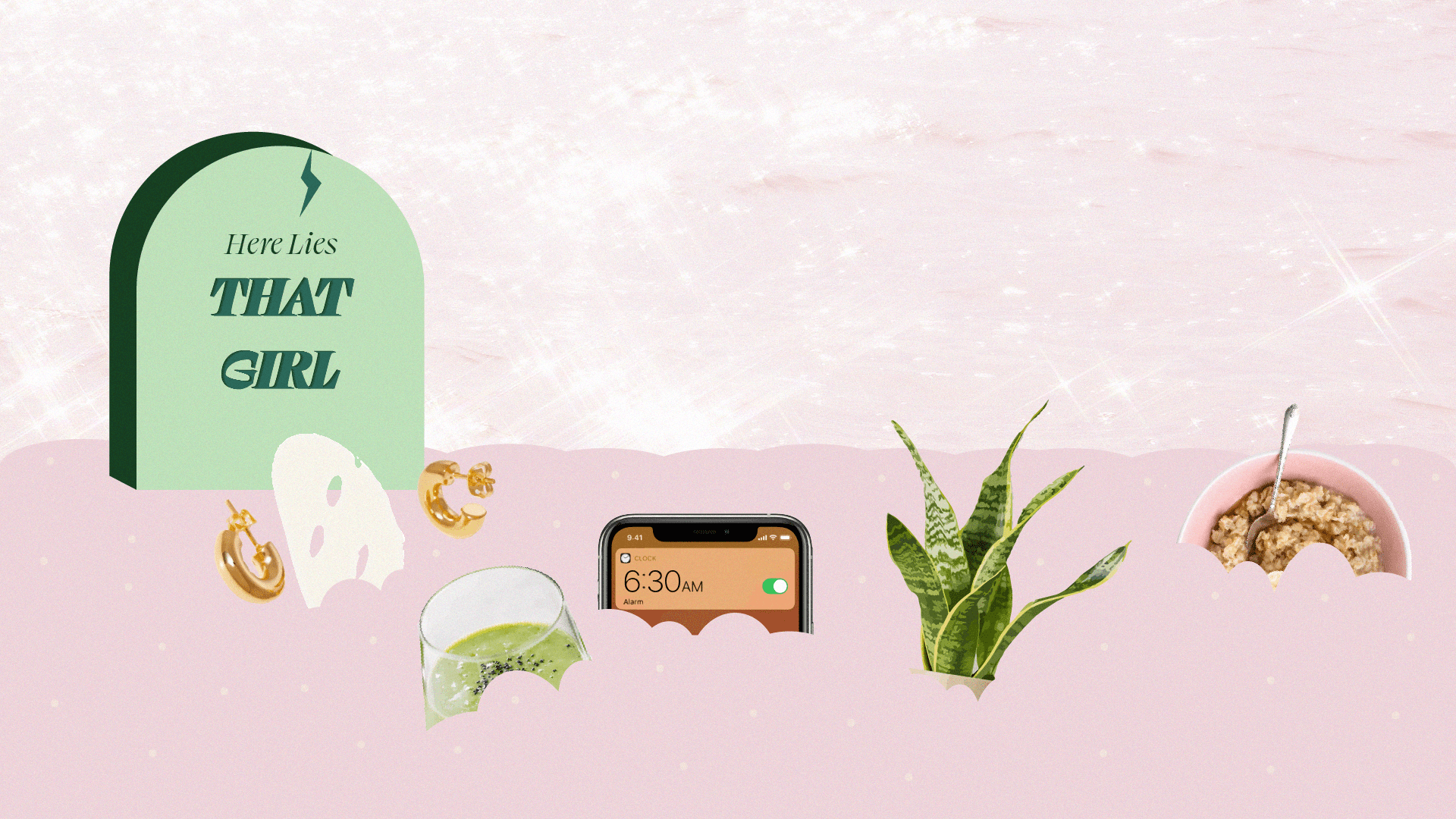
Simone Biles is Revamping the Mental Health Conversation
Biles and other young public figures are changing the way we talk about mental health and self care.
“We’re not just athletes or entertainment.”
Simone Biles sent the world into a tizzy when she withdrew from the all-around, floor exercise, vault, and uneven bars finals last week at the Tokyo Olympics. The now-seven-time Olympic medalist was unable to perform after completing her first round of floor and vault because of her mental health. Due to stress, she had the twisties, a phenomenon where gymnasts are unable to keep track of where they are in the air, which can lead to severe injury or death.
The move shocked millions of fans around the world. Biles was expected to leave the Tokyo 2020 Olympics decorated in gold medals. As the powerhouse gymnast of the world, with a total of 32 Olympic and world medals, some saw Biles’ withdrawal as a disappointment.
The Olympian was quite candid on her Instagram Story about the twisties and the real dangers that come with them.
“It’s the craziest feeling ever,” she wrote. “[I] literally can not tell up from down.”
For some, it didn’t matter that a half-turn too many could severely injure or even kill her. To those suggesting that Biles had given up at her withdrawal, she countered: “I didn’t quit, my mind and body are simply not in sync…I don’t think you realize how dangerous this is on hard/competition surface, nor do I have to explain why I put health first. Physical health is mental health.”
And so Biles became the crest of a mental health wave sweeping across America.
Frank conversations about mental health have gained traction in recent years. Though some athletes and celebrities have championed mental health for a long time (we see you, Michael Phelps), the past few years have seen dozens of public figures advocating for conversation and change. Perhaps it’s because Gen Z and Millennials have grown up surrounded by school shootings, economic crises, and environmental catastrophes. Either way, figures like Biles are speaking up about the pressure to be Something.
Biles isn’t alone in feeling incredible pressure from the world. Earlier this year, Prince Harry and Meghan Markle stepped back from the royal family. In a now-famous interview with Oprah, Markle said racism from the public, with no protection by the Royal Family, has caused extreme mental stress, and she even experienced suicidal thoughts.
Then, in June, Olympic swimmer Simone Manuel opened up about the insomnia and depression she experienced as a result of overtraining syndrome. More recently, star tennis player Naomi Osaka withdrew from the French Open (and later, Wimbledon) because of the pressure to do press reports, even though the conferences “stoked” her anxiety. “The press-conference format itself is out of date and in great need of a refresh,” she wrote in an essay for Time. “Perhaps we should give athletes the right to take a mental break from media scrutiny on a rare occasion without being subject to strict sanctions.”
Of course, it isn’t just celebrities who feel the pressure to perform. One in five people in the United States suffer from mental illness. Competition is not only implicitly built into our everyday lives, but it’s available at our fingertips 24/7. We are constantly reminded via social media that someone better exists. We need to do better at our job. Look better, prettier, fitter. Be more productive, furnish our homes a certain way, and execute career goals at a young age.
We are all performers in our own lives. Who else are we posting those selfies to Instagram for? Why else would we show off our newly-decorated homes, tweet our every moment, and obsess over who watched our Snapchat stories? It’s already hard growing up while the world is on fire and racial violence continues; social media adds gasoline to the fire.
Too often, social media overwhelms the mental health of young adults in America. Only recently has mental wellbeing gained traction on sites like TikTok. Since the pandemic began, 18-to-24 year olds have reported the highest levels of anxiety and depression among multiple age groups. And 95 percent of people are considering changing jobs, according to a survey from Monster.com. This “Great Resignation” is attributed to the mental health movement gaining traction, as people realize that they aren’t happy, are suffering from burnout, or are in work environments that aren’t healthy for them. In April of 2021 alone, 4 million people resigned from their jobs.
As in most situations, the people who are hit the hardest are people of color, especially women. Society expects perfection from Black women, allowing for no wiggle room, while at the same time commits acts of violence and subsequently ignores them. For Biles, Osaka, and Manuel, self care is already a radical act. The fact they are at the forefront of changing mental health conversations across the country serves as a departure from the way America treats its female athletes of color.
Though born in Japan, Osaka faced severe backlash for playing for Japan in the 2020 Tokyo Olympics. In her docuseries with Netflix, she said, “I’ve been playing under that Japanese flag since I was 14…so I don’t choose America, and suddenly people are like, ‘Your Black card has been revoked.’”
And Sha’Carri Richardson, who was expected to blow away the Olympic competition this year, was suspended after testing positive for marijuana use. Richardson had been using it to cope while in Oregon (where marijuana is legal), when a reporter informed her of the sudden death of her biological mother.
But why should Richardson have to justify the use of a drug that is completely legal? In the face of the online hate she was getting, Biles revealed that her aunt unexpectedly passed away during the 2020 Tokyo Olympics. “You have to be a little bit more mindful of what you say online,” she said, “because you have no idea of what these athletes are going through as well as (in) their sports.”
It is impossible to know what’s really going on in someone’s life — and honestly, it isn’t anyone’s responsibility to justify the state of their mental health in order to be taken seriously. Like any other medical illness, like any other invisible illness, our mental health is real and does not require explanation.
It’s about time America wakes up and acknowledges mental health is more than an individual concern. We are at the precipice of a huge cultural shift, and we are lucky enough to have leaders like Biles and Osaka.
In an interview after winning her bronze medal, Simone Biles said she wanted the biggest takeaway from her Tokyo storyline to be about taking care of yourself.
“Put your mental health first,” she said. “That’s more important than any medal you could win.”
To learn more about mental health, you can visit the CDC website for free and confidential resources. If you or a loved one needs immediate care, the National Suicide Prevention Hotline at 1-800-273-8255 remains active 24/7.


